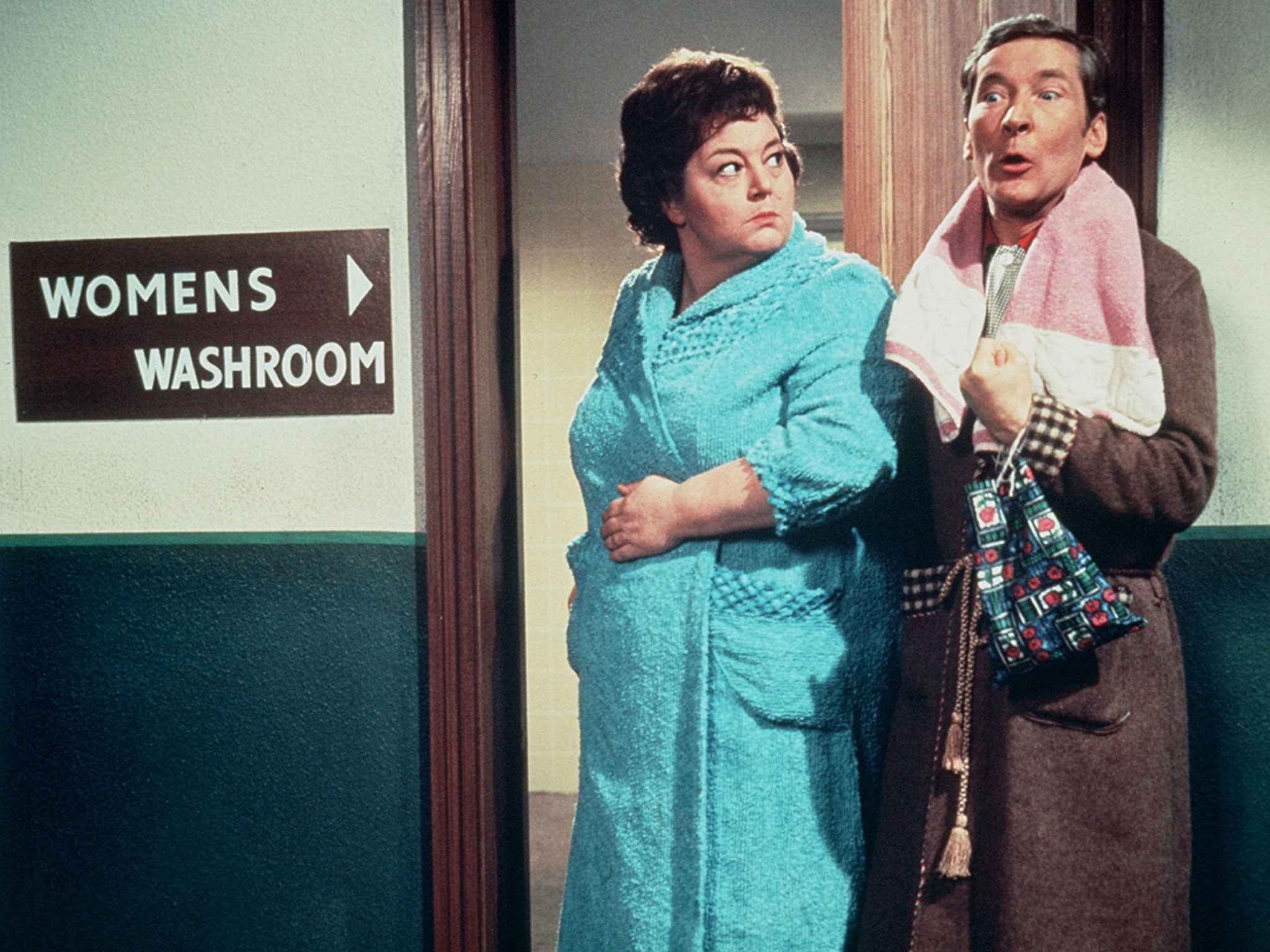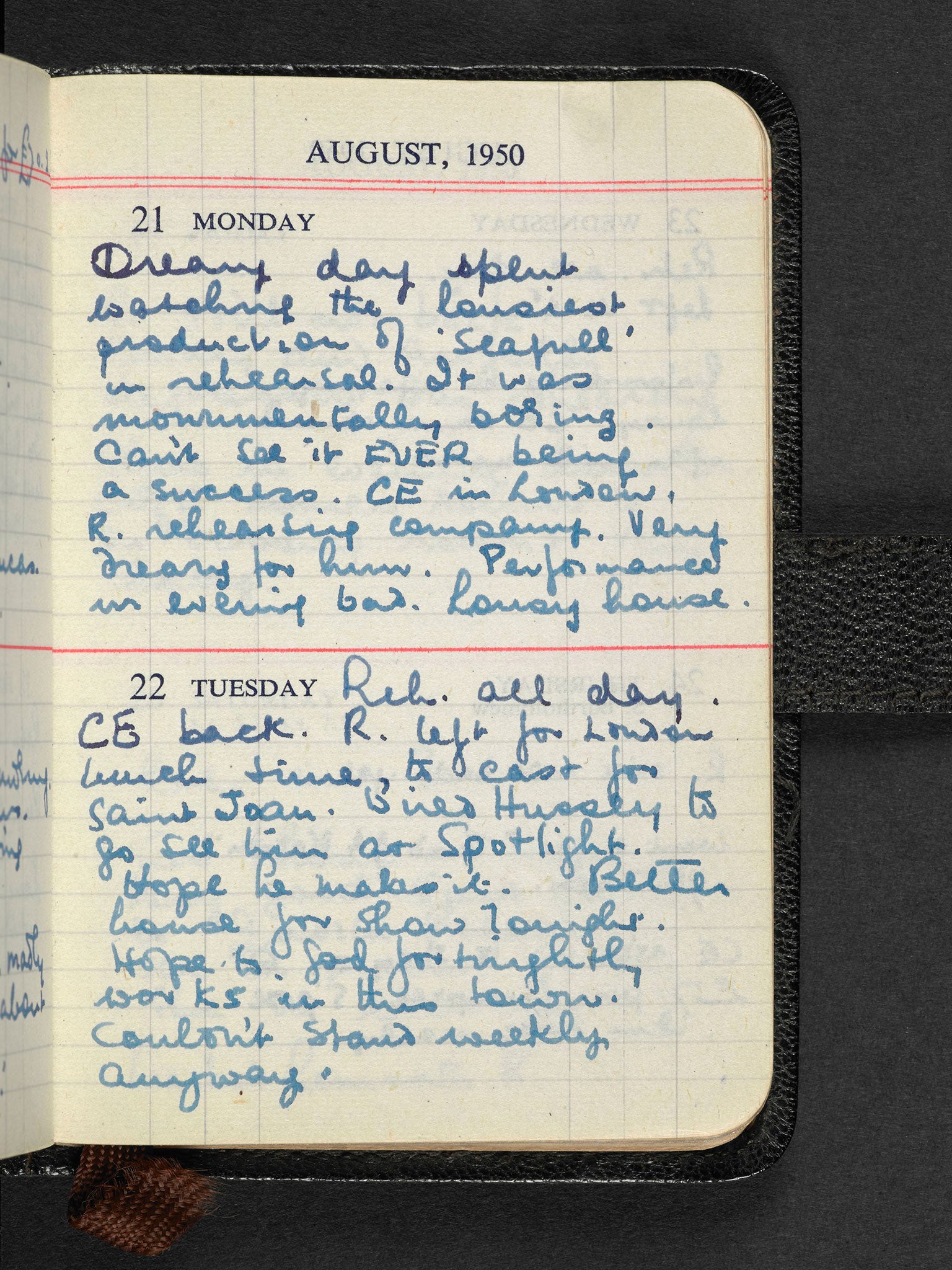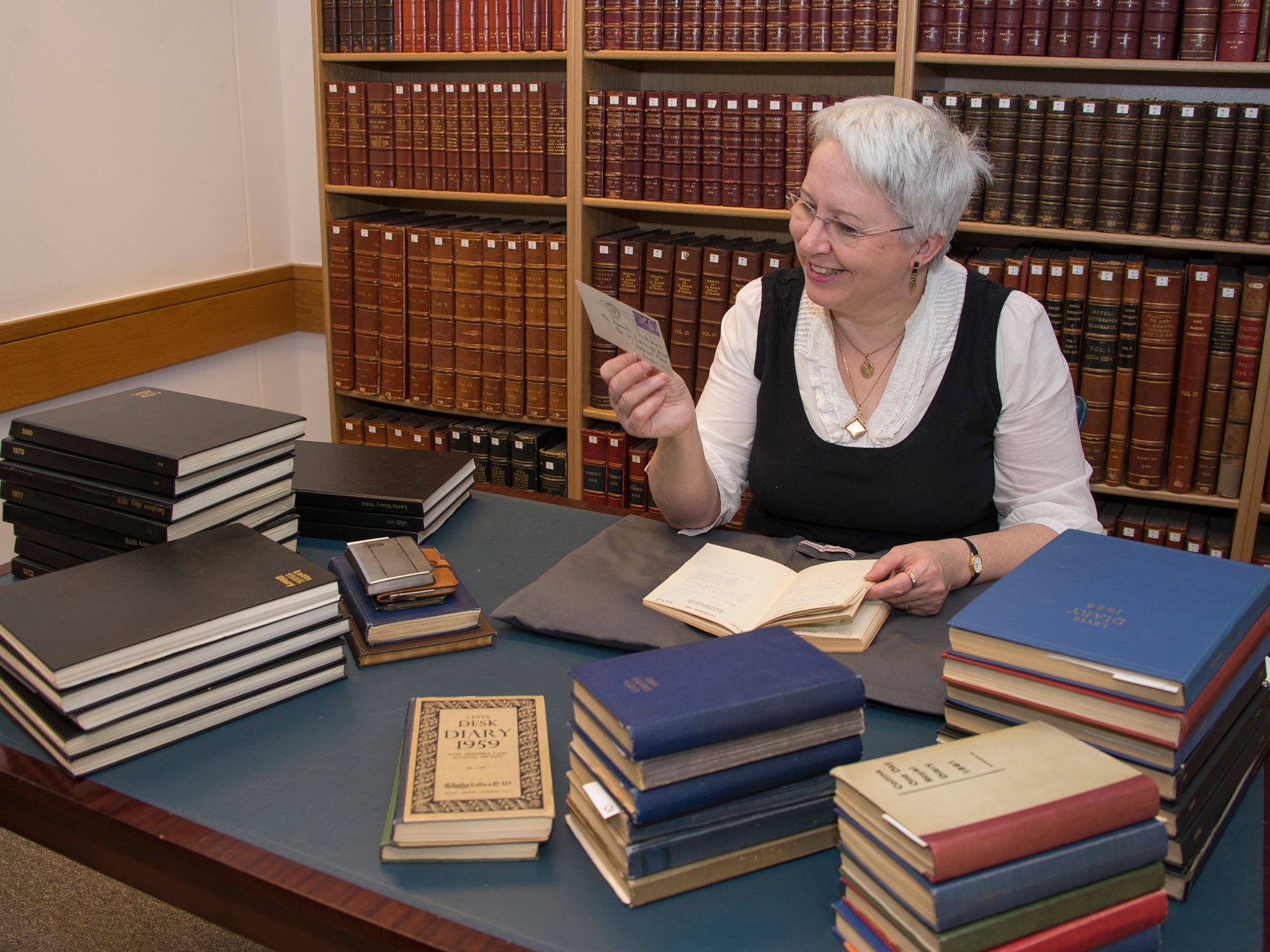Kenneth Williams: Carry On star's diaries to be redacted ahead of British Library exhibition
Many living colleagues of the waspish actor are exposed in a new cache of his acerbic letters and diaries

Your support helps us to tell the story
From reproductive rights to climate change to Big Tech, The Independent is on the ground when the story is developing. Whether it's investigating the financials of Elon Musk's pro-Trump PAC or producing our latest documentary, 'The A Word', which shines a light on the American women fighting for reproductive rights, we know how important it is to parse out the facts from the messaging.
At such a critical moment in US history, we need reporters on the ground. Your donation allows us to keep sending journalists to speak to both sides of the story.
The Independent is trusted by Americans across the entire political spectrum. And unlike many other quality news outlets, we choose not to lock Americans out of our reporting and analysis with paywalls. We believe quality journalism should be available to everyone, paid for by those who can afford it.
Your support makes all the difference.Anyone who crossed swords with the waspish actor Kenneth Williams was dispatched with the warning “You’ll be in my diary!” Now the British Library has promised to redact the names of living colleagues of the Carry On star who are exposed in a new cache of Williams’s acerbic letters and personal diaries acquired by the institution.
The Library has taken possession of 43 personal diaries and approximately 2,000 letters spanning the actor’s career from the age of 18 until his death in 1988.
Acquired from Paul Richardson, Williams’s friend and neighbour, to whom he left his entire estate, for £220,000, around 85% of the papers have never before been made publicly available.
Aside from recording Williams’s dismissive responses to his contemporaries’ best screen and stage efforts, the Library believes that the archive represents an important social history of post-war Britain since it details the experience of a gay man both before and after the Wolfenden Report and the decriminalisation of homosexuality in 1968.
Kathryn Johnson, Curator of Theatrical Archives and Manuscripts at the British Library said: “There is a certain amount of extremely robust theatrical knockabout about his contemporaries. Actors should have a thick skin but where the privacy of someone living or their family is an issue we will go through the diaries and redact names.”

She added: “Williams is instantly recognisable as the acerbic and fastidious character well known to several generations but also, more surprisingly, is shown to be a reflective and poignant observer. The diaries and letters record the actor’s experience of the dying days of the repertory theatre system and the growth of modern celebrity culture, something he seemed both to love and loathe.”
Williams’s targets include “David (dreary) Lean,” director of the epic 1966 adaptation of Doctor Zhivago. “This may be the Great Russian Novel but it’s a pain in the arse as a film,” he writes. “Everyone has LONG PROFOUND looks at each other – they frequently cry on meeting, or seeing people shot or something … no film should be boring, and this one is.”
A dispute with fellow Joan Sims on the set of Carry On Camping is recorded - “Her patronage & assumption at times that she should tell me what to do, is intolerable” - along with passages expressing the loneliness of Williams’s solitary life in London.
Richardson said Williams would be “pleased and honoured” that his private writings would be “preserved for the future and appreciated by the public and scholars.”

Watch Apple TV+ free for 7 days
New subscribers only. £8.99/mo. after free trial. Plan auto-renews until cancelled

Watch Apple TV+ free for 7 days
New subscribers only. £8.99/mo. after free trial. Plan auto-renews until cancelled
The material will be available to researchers in the Library’s Reading Rooms from March 2016.

The Library also announced that in 2016 it will mount Shakespeare in Ten Acts, an exhibition commemorating the 400th anniversary of the playwright’s death through ten key performances. It will include an example of bawdy Elizabethan gossip from the diary of a law student named John Manningham.
In the entry dated 13 March 1602, which will go on display for the first time, Manningham recounts a story about Shakespeare and his friend, the famous actor of his day Richard Burbage, in which Shakespeare steals his friend’s invitation to visit a female fan after Burbage’s performance in Richard III at the Globe, sending back the message “William the Conqueror was before Richard the 3.”
The Library will also stage Punk 1976-78, an exhibition exploring the rebellious musical uprising’s early days in the capital. The exhibition will “celebrate the enduring influence of punk as a radical musical, artistic and political movement.”
Join our commenting forum
Join thought-provoking conversations, follow other Independent readers and see their replies
Comments